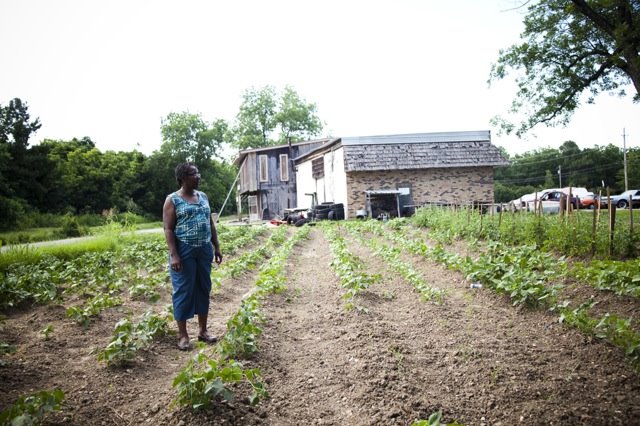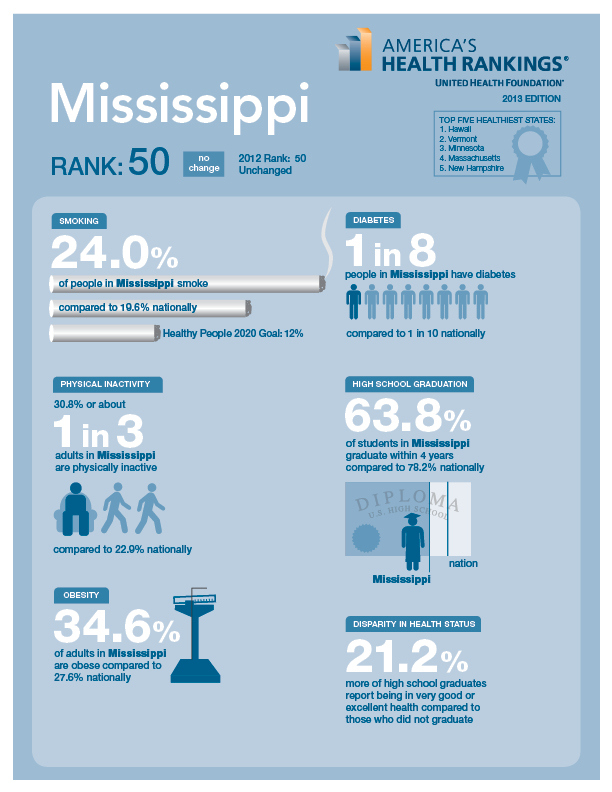Headlines
The Good Food Gospel in the Delta
The Mississippi Delta: A land prized for its rich soil. A land abounding in agriculture. A food desert.
According to the 2013 edition of America’s Health Rankings, released last week, Mississippi ranks highest in food insecurity in the nation. Over 22 per cent of Mississippians experience food insecurity. With little to no access to fresh foods, many resort to processed foods high in fat, sodium, and sugar. This reality results in an obesity and diabetes epidemic more threatening in Mississippi than in any other state.
This is old news to Mississippians.
Some Magnolia State policy makers, like Governor Kirk Fordice in the 1990s, respond to national rankings with campaigns for positivity. Jake McGraw, editor of Rethink Mississippi, criticizes the Positive Mississippi mantra, saying it exacerbates the problems by disclaiming ownership. In a push for a more honest dialogue, McGraw writes, “Mississippi may have illiteracy, but Positive Mississippi has a pantheon of great writers. Mississippi may have obesity, but Positive Mississippi has scores of Hall-of-Fame plaques in Canton and Cooperstown. Mississippi may have poverty and prejudice, but Positive Mississippi has countless legendary musicians who learned to play in humble sharecropper shacks…
“Mississippians still rely on this formula when confronted with our collective problems. By prioritizing the state’s image problems over our underlying deficiencies, the Positive Mississippi narrative has become its own worst enemy…Rather than hiding from our problems, we must focus relentlessly on finding solutions.”
Opposite of Positive Mississippi, the low rankings dishearten many constituents. In interviews last spring, several Mississippians expressed feelings of shame when asked about their food traditions. Traditional Southern food is rich. But it is also inextricably tied to the earth and its seasons. Only in recent decades did family gardens disappear. Only in recent decades has the Mississippi Delta become the food desert that it is today.
Land of Plenty, produced by journalism students under Professor Bill Rose at the Meek School of Journalism at the University of Mississippi, investigates this shift. Will food save the Delta or be its death? Phillip Waller writes,
“After the arrival of mechanized and industrial farming in the Delta, rural family gardens were eventually replaced by large company farms that ran smaller farms out of business and blanketed the area with cash crops. What was then a sign of progress was actually a breakdown in the balance of the agricultural system.”
In a region where ten crops represent 92 per cent of agricultural output, the article profiles the burgeoning gardening revolution. In Itta Bena, Samuel Chapel United Methodist Church and the local chapter of Communities for All Ages engage the city with an award-winning garden, special health programs, and healthy eating classes. The garden provides sweet potatoes, tomatoes, broccoli, peppers, peas, cucumbers, beans, watermelons, okra and collards in a community with no grocery store.
In and around Mound Bayou, MS, Ryan Betz coordinates the Delta Fresh Foods farm-to-school program and mentors the gardens of 36 churches in the area. Five miles to the north, Dorothy Scarbrough leads Mississippians Engaged in Greener Agriculture. A witness of the dangers of obesity through her work as a nurse, Scarbrough began planting fruit trees around town, so that people could go out and pick fresh fruit without having to drive to a grocery store. Now, she has implemented a community food pantry and garden.
Nate Rosenberg, a Harvard researcher and Delta Fellow, helps Delta residents build a better food system through legislative research and policy proposals. “If we want to have a healthy economy and a healthy food system, we are going to have to go in the reverse direction,” Rosenberg said. “The rich Delta soil will have to produce food once again.”
“We need to take stock of the state without shame or blame. This is the place we love, and love not only withstands honesty, it demands it. That doesn’t mean we shouldn’t celebrate Mississippi’s positives — far from it. But we must understand that virtue is not incompatible with fault, and that acknowledgment does not imply judgment.”—Jake McGraw, Rethink Mississippi
Mississippi: 50th. But with the good work of dedicated individuals and an honest approach, Mississippi can fight the good fight and provide better food access across the state.
Emilie Dayan, our project manager, blogs weekly about issues of nutrition, sustainability, and food policy in the South.
–Emilie Dayan, SouthernFoodways.org































